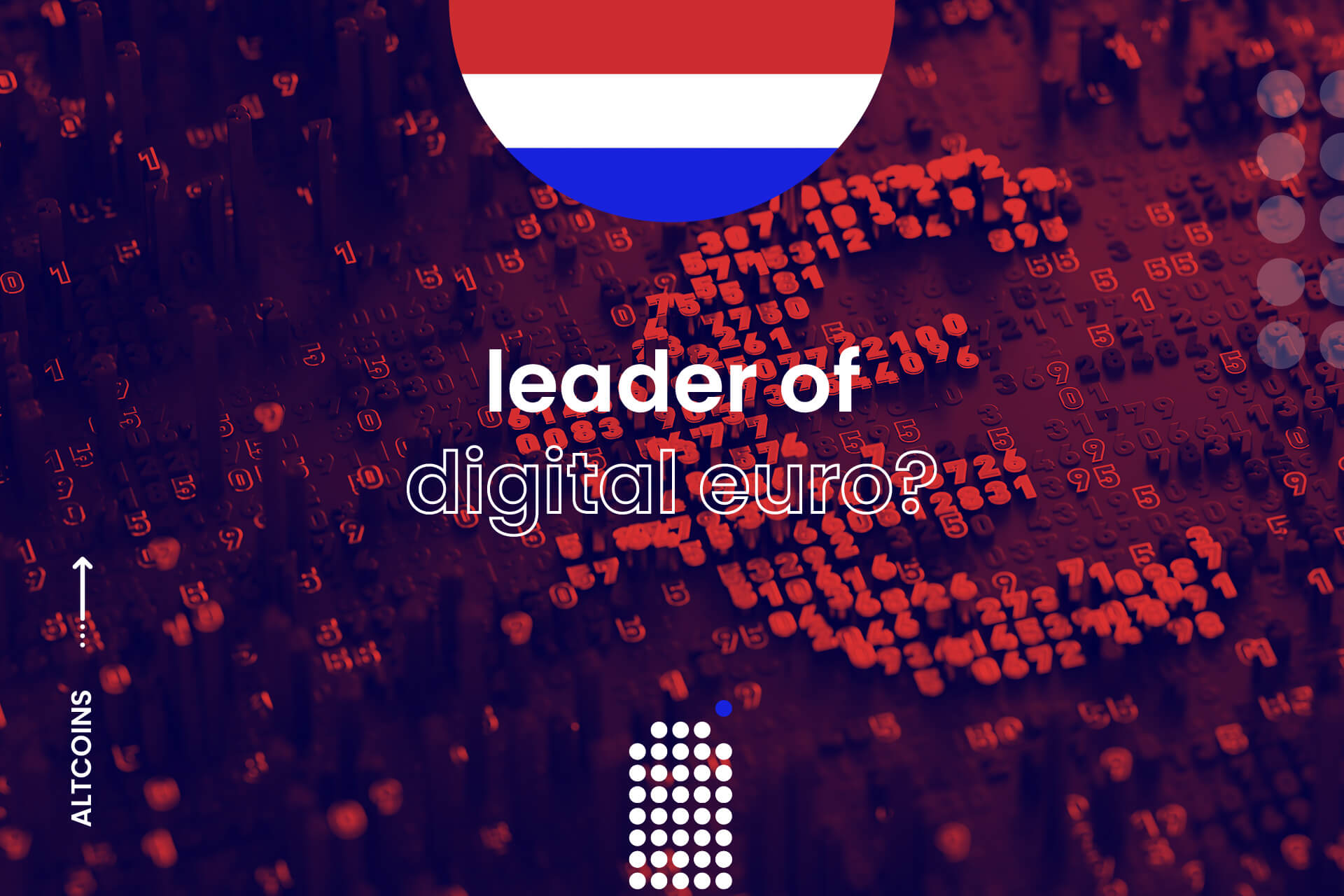
Digital Euro might be a step closer to becoming reality as Netherland’s Central Bank expressed a wish to become a leader of its development process.
De Nederlandsche Bank (DNB) which is the central bank of the country announced a bulletin this Tuesday, where it said that it is ready to play a leading role in research and development of European digital currency.
The bank stated that it is ready to provide a suitable testing ground for the Central Bank Digital Coin (CBDC) experiment in the European Union (EU).
Digital Euro is expected to serve as a backup for non-cash payments as well as promote diversity in the payments market. The bank admits that the general digital currency of the EU might make cross-border payments more efficient.
The Netherlands turning away from fiat
The use of physical coins and banknotes is declining in various countries. According to the DNB document, the same trend is clearly observed in the Netherlands as citizens and firms choose digital ways to pay for their purchases instead of using fiat currency. The document reveals Netherland’s position that central banks should take action here:
A question that naturally springs to mind is whether central banks should provide a new type of money that is better attuned to the needs of citizens and firms.
Furthermore, the document mentioned Facebook’s Libra projects as one of the reasons why central banks should consider issuing their own digital currencies. According to it, Libra Coin, which will be backed by several fiat currencies already exposed flaws in today’s payment systems.
The Netherlands turning away from fiat
The bank admitted it has a positive attitude towards CBDC as digital Euro could promote the smooth functioning of the payment system:
For example, CBDC could serve as a backup to payments made in private money, considering that we become exceedingly dependent on private money in a rapidly digitizing payment system.
A case in point is the fact that, due to the coronavirus pandemic, many retailers ask their customers to refrain from using cash, meaning they effectively only accept private money.
The bank claims it is essential for public money to remain available to all. The ability to exchange public money to private ones is a way to maintain the trust in the monetary system, says DNB and adds that trust is key in extreme situations, such as financial crisis, wars or disruption in private payments.
The Netherlands is not the only European Union country that shows interest in creating digital Euro.
France has already launched its experimental program, which aims to test the integration of a CBDC for interbank settlements. Another EU member Sweden is also preparing to become a cashless country and is testing its digital currency e-krona, based on blockchain technology.
